This year Christchurch City Libraries launched its Sustainable Living Series to support the Christchurch City Council's climate change strategy. From sustainability storytimes to workshops and talks, a programme of ongoing events for people of all ages is on offer to help build the resilience that Christchurch needs to support climate adaptation. Libraries, books and stories have an important role to play in shaping the future, as demonstrated in Jane Goodall's recent appearance in Christchurch on May 30th.
When the world-renowned primatologist-turned-conservationist Dr. Jane Goodall appeared at the Christchurch Town Hall recently as part of her Rewind The Future Tour, she opened her session by telling a story that demonstrated her calling from an early age. She recounted how when was 4 and a half years old she visited a farm and was fascinated by the chickens. She was curious about exactly where their eggs were coming from so she lay in wait observing them. She was so engrossed in doing this that she was missing for hours and her family even called the police to help look for her. Oblivious to the fuss, she eventually emerged from the hen house, excitedly telling her mother what she had discovered. This incident demonstrates traits Jane possesses that she considers an important asset in anyone: curiosity and patience. What's more, her mother - who she says could have scolded her – was instead interested and supportive and remained so throughout her life.
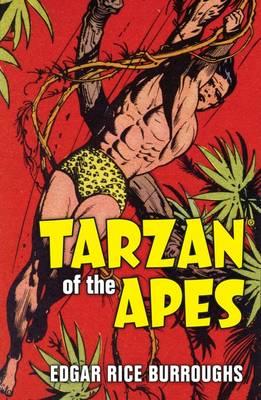
To fuel Jane's interest in animals her mother got her lots of books, many of them borrowed from the library because they didn't have a lot of money. As a librarian, I took heart in hearing how valuable the library was. Another influence books had on Jane's future was from reading Dr. Dolittle and Tarzan as a child - which lead to her dreams to go to Africa, to work with animals and have adventures there. She admits she had a childhood crush on Tarzan of the Apes and jokes that "Tarzan married the wrong Jane."
Goodall welcomed her audience with an impressive imitation of the vocal sounds used by chimpanzees to greet one another. The generously long evening with Jane was split into parts. First she gave an overview of her background and how she got to where she is today with her work, interspersed with inspiring stories and her world view. Jane carries out her advocacy work most effectively, she says, by storytelling. After a music interlude from the band Fly My Pretties, the later half of her session was a 'fireside chat' with her MC for the evening, the effusive journalist John Campbell. The themes of her talk included interconnectedness, poverty - of animals, people and environment - and the importance of not losing hope and acting positively in negative circumstances.
The Rewind the Future Tour was presented in Aotearoa by the Jane Goodall Institute New Zealand (JGINZ). The organisation says that "from the moment she set foot in Gombe Stream National Park at age 26, Dr. Goodall was on a path to make an importance difference in the world." Initiated by Professor Louis Leakey, "her ground-breaking research earned Jane the label of 'the woman who redefined man' as it rocked the scientific world, and helped shed new light on the relationship between humans and animals." A lot of Jane Goodall's life story and details of her work are readily available online, in books or on film and have been retold many times. Now age 85, she really doesn't have to go on tour to recount it all or to get her message out there. (And she's repeating herself over and over everywhere she goes). But, she says, she receives constant feedback that what really inspires people is seeing her in-person.
Becoming an activist
As for her own awakening, Jane says she became an activist in 1986 after attending a conference on animals in captive situations. There she saw film footage of chimpanzees in lab cages who couldn’t exhibit their natural behaviours such as being able to groom each other or play – some had spent many years in cages. She went to that conference as a scientist, she says, but left as an activist. It was a moment for her that she compares to the enlightenment of St Paul on the road to Damascus. Since then, Jane says she hasn’t set foot anywhere for more than three weeks, travelling around the world to spread her message and good work for over 300 days of the year.
To any climate change deniers, Goodall says she finds evidence for it everywhere she goes in the world. She hears from locals, like the Inuit in Greenland, who tell her how much the climate has changed where they are. Weather used to be more predictable but was now hot when it used to be cold or dry in places that used to be wet - or vice versa. In Gombe, where she has spent many decades, the once pronounced rainy season has become unreliable. She bears witness to climate change and the damage humans are doing to the Earth. It perplexes her:
“How is it possible this intelligent species is harming the planet? There is such a disconnect between head and heart and only when they are working in harmony can we flourish.”
Roots and Shoots
“We are in dark times” Jane said, "But if we lose hope we might as well give up." She says: “Every single one of us makes a difference. Every single one of us has an impact every day.” She has seen examples of positive change, particularly with the work she does with the organisation she started in 1991 called Roots and Shoots, "a global sustainability and citizenship education programme which assists young people in 100 countries in becoming conservation activists". From preschools to high schools, "young people of all ages are empowered to make a difference right where they are as they design and implement sustainability action projects with positive impacts for animals, people and the environment." These groups are tasked with focusing on 3 self-chosen projects: 1) for the animals, 2) for people and 3) for the environment. The programme helps develop "compassionate future leaders". With over 100,000 chapters worldwide, she says these groups are changing things for the better and are her greatest reason for hope. Goodall meet with a host of schools throughout New Zealand, from primary to secondary, and took part in workshops with many students from all over Christchurch.
Ever the ecological stateswoman, Goodall reiterated to us the famous quote: "We don’t inherit the Earth from ancestors, we borrow it from our children." With this in mind, she invited Maha Fier, a 16-year old student from Paraparaumu College to speak on stage. Maha said her awakening began when she was taken for her 12th birthday to hear Jane Goodall speak. Maha now helps run a group at her school called SEAR – which stands for Societal, Environmental and Animal Rights - and she is an example of future generations taking positive action. Maha was a recipient this year of the inaugural Jane Goodall Trailblazer Awards, given to her and Green MP Chlöe Swarbrick.
On poverty
While visiting Christchurch Jane also took the time to meet with the Richmond Community Garden group that donates their harvest to foodbanks. Jane says that societies have to address the issue of poverty. "Extreme poverty is not just in developing nations" she says. She sees it in first world countries as well. "Solving poverty and inequality will help us solve problems with ecology. Then, poor people can afford to make more ethical choices." She praised countries like Costa Rica, known for its environmental protections, but which has also abolished its armed forces and has more money to spend instead on the wellbeing of its people. She wishes more governments would take a leaf from their book.
Acting locally
Jane encouraged local action:
"If people are inspired you can do simple local things, like conscious consumerism. Think about our daily choices and our unsustainable lifestyles. Think globally and act locally so it’s less overwhelming and depressing. The world is like a giant jigsaw puzzle – work on your part of the jigsaw to overcome fatalism.”
On exponential population growth
Goodall said although it's a politically sensitive topic, she wants to see societies address unlimited population growth and to consider what she politely calls "voluntary population optimisation." Her pronouncement that “we have enough for human need, not human greed” received supportive applause.
“We have enough for human need, not human greed.”
On vegetarianism, animals and the environment
Jane encouraged vegetarianism for several reasons. She was, naturally, against factory farming and the conditions in kept sentient beings in. At one point in her chat with John Campbell, Goodall named the most important people in her life as having been her mother, Professor Louis Leakey, chimpanzee David Graybeard, and her dog. Campbell pointed out that 2 of these 4 'people' were actually animals. She just smiled:
"The longer I continued to study the wild animals in the world, I began to understand the interconnectedness of all living things. Every species, no matter how insignificant, has a role to play."
Throughout her talk, she gave several examples of the intelligence and capabilities of animals such as the giant forest rat in Africa with a sense of smell that sniffs out TNT in landmines. John Campbell said he could remember as a child that the Wellington Zoo used to make chimpanzees have tea parties to entertain visitors. Such practices seem so obviously wrong today, demonstrating that societal attitudes and behaviours can change.
But Jane also talked of the importance of vegetarianism for the environment: "Animals producing methane gas is more virulent a problem than CO2 emissions." John Campbell acknowledged that "this is a complex discussion for New Zealanders to have," prompting him to ask Jane: "How do we get the balance right when our economy is based on cows?" Jane's suggestion: "One way is to grow hemp." There was applause from the audience at her reply. "Hemp can make strong bricks and clothes. It also absorbs CO2 while growing." Using the analogy that "the forests are the lungs of our earth," she stresses the importance for us to protect them.
Resilience of nature and the indomitable human spirit
"We are losing our biodiversity," says Goodall, "But I have seen first hand the resilience of nature." For instance, she has witnessed the successful recovery of the bare deforested hills near Gombe through her work with villagers there to save their forest. And in New Zealand, she gave the example of the black robin which was once low in numbers and on the brink of extinction (with only one breeding pair left in 1980) but now through conservation work, there are a few hundred black robins. "Why have we got this intellect if not to find solutions to our problems?" she implored.
Jane also talked about the indomitable human spirit, found in people she admires like Nelson Mandela but also found in ordinary people as well, doing extraordinary things. “Nurture and grow your indomitable spirit” she implored.
On hatred
On a side note, but one that was poignant for Cantabrians, she said: "We must do something about hatred, especially hatred of people of different religions." She referred to the Christchurch terror attacks. She said that from many religions comes the 'golden rule' of "doing unto others as you would have them do unto you." She said she addresses hatred "by bringing together people from different cultures." Her feelings about hatred can be found right back to her early upsetting encounters with racism in Cape Town in her late 20s. She was distressed by the racial segregation of apartheid that she was confronted with there. Touchingly she said:
“Our blood is the same
Our tears are the same
Our laughter is the same
We are one family”
On inspiring and enabling others
Speaking of family, several times throughout the evening Jane made a point of acknowledging and honouring her mother who supported her passion and journey. I took heart hearing this because I had myself brought my young animal-loving 'eco-warrior' daughter to see Jane Goodall for her birthday. It was her dream to meet Jane Goodall one day. In fact, a lot of people had brought their children to hear Jane speak and although tickets weren't cheap, they went to a good cause. And just as her mother helped a young Jane Goodall to become who she is today, Jane says she now goes around the world to likewise “enable young people.”
Books about Jane Goodall for kids
“I am being used as a messenger” she says. "I don't understand how I have become an icon. I don’t feel huge, I feel small, so I have to try and live up to that iconic status that’s been thrust on me. I realised I had a gift for communication – if you’re given a gift, use it."
When John Campbell suggested it must be an onerous burden on her, she conceded: "It feels like I'm on a treadmill and I can't get off." "You say this," Campbell countered, "but your eyes are sparkling." Perhaps her eyes sparkle, he suggested, because she must sense that she is making a difference. He admired her stamina and ability to keep generously giving her time to people and causes and asked what her driving force was. Jane said it was because:
"I am passionate about animals and wilderness areas and future generations. And I am not going to sit back and let the Trumps and others get it all their own way."
The audience broke out into applause at this empowering statement.
Doing good for all
Jane Goodall's visit to New Zealand in May came at the same time as the second global school strike for climate change. "How do you deal with the impending doom of climate change?" a young girl asked Jane towards the end of her session. You could sense the sadness in the audience that a young person had asked this question and feel the heavy weight on us all. But Jane optimistically replied: "If we do something. We all have to do a little bit. It won’t be easy but if you think there’s inevitable doom, you’ll give up."
Jane concluded her talk by sharing a story about a chimpanzee named Wounda that she had a special connection with a few years ago when the chimpanzee was released into a sanctuary. Wounda has recently given birth against expectations. They named the baby chimp Hope. And that was Jane's final message to us: hope.
John Campbell was justifiably gushing about Jane Goodall the whole night, on all our behalf. He summed up the evening with her by saying she had shown us what a difference an individual can make and shown us how, despite the fact that the planet is in trouble due to our behaviour, we can change our behaviour. Jane Goodall is the ideal combination of head and heart, he said, and an indomitable human spirit.
The Rewind the Future Tour was presented by the Jane Goodall Institute New Zealand and LOOP.
Find out more and get involved
- Browse books and resources about Jane Goodall in our collection.
- Photos of Jane Goodall at Richmond Community Gardens Canterbury Stories
- Explore our children's books on Jane Goodall.
- Jane Goodall Institute New Zealand
- Roots and Shoots
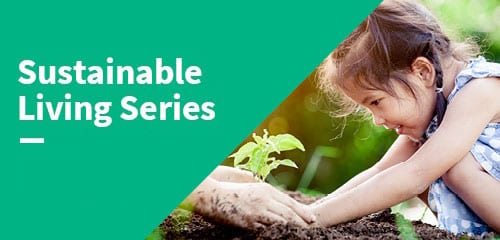
- Christchurch City Libraries Sustainability Living Series of events - there's heaps happening in June at Lyttelton Library
- In July, sustainability events are also running as part of Kidsfest: Sustainable Bag making workshop for kids.


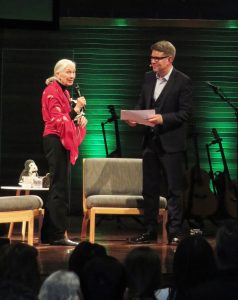
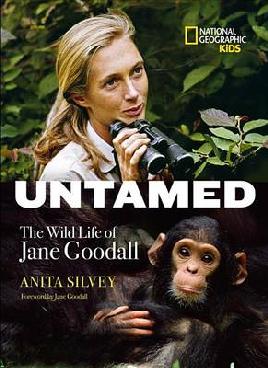
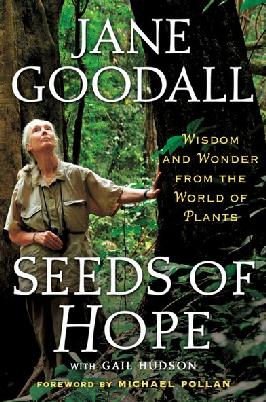
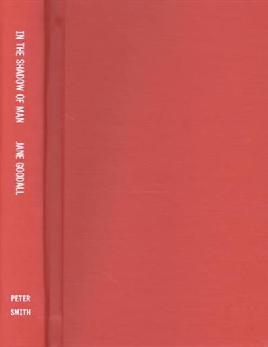
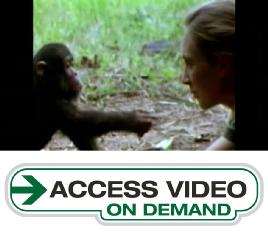
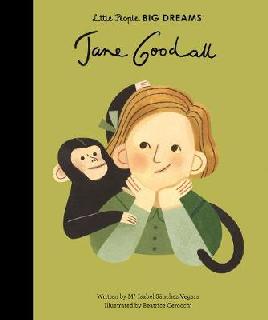
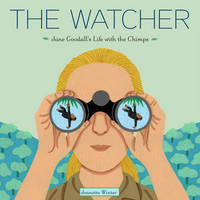
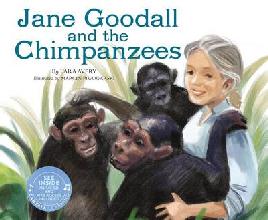
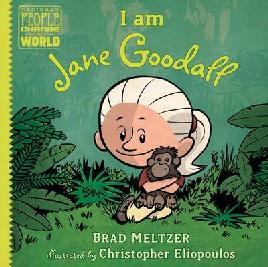

Add a comment to: Jane Goodall in Christchurch